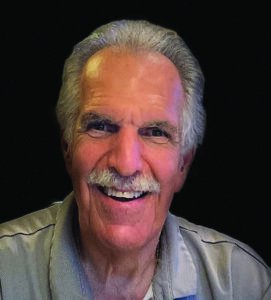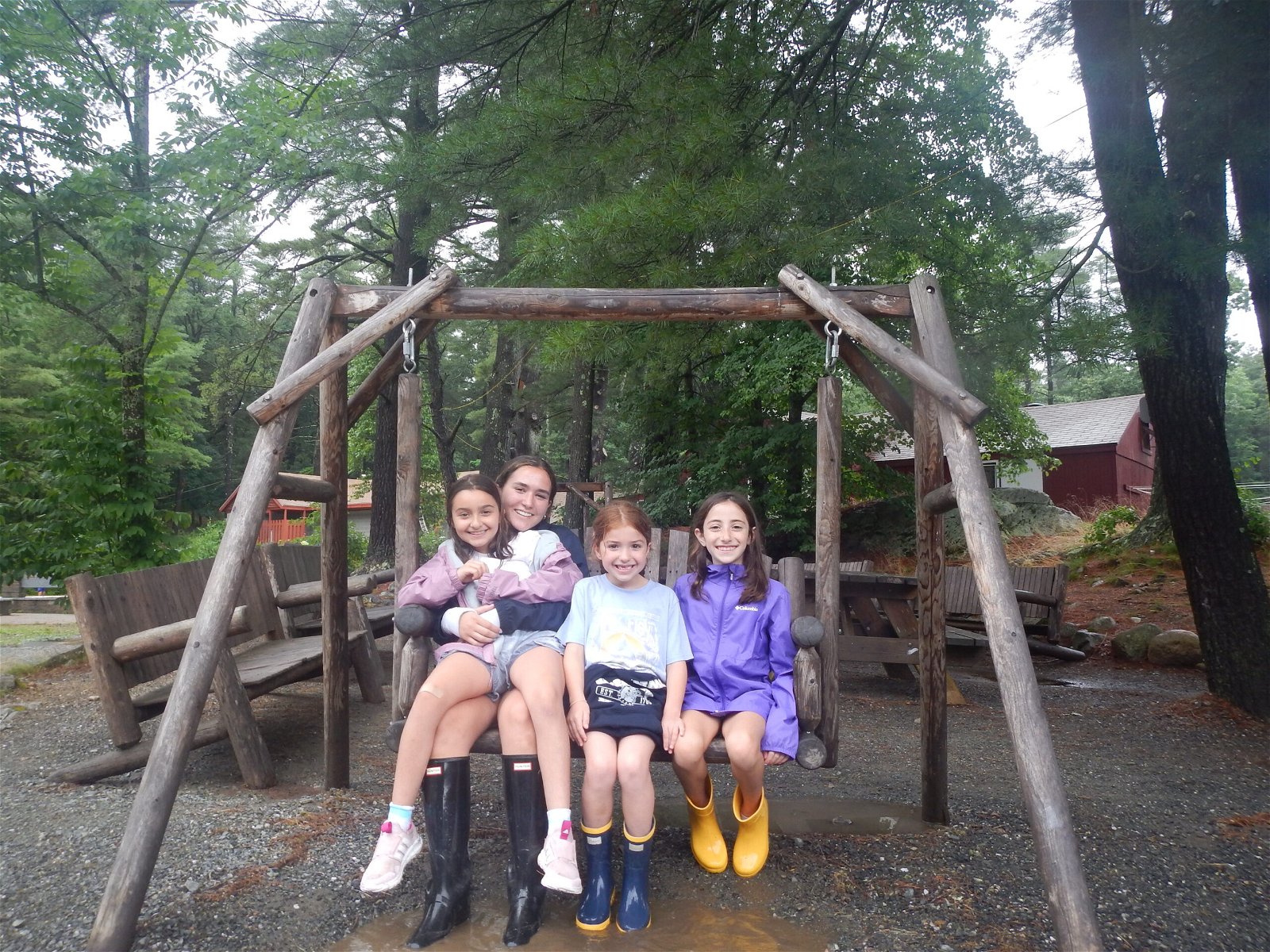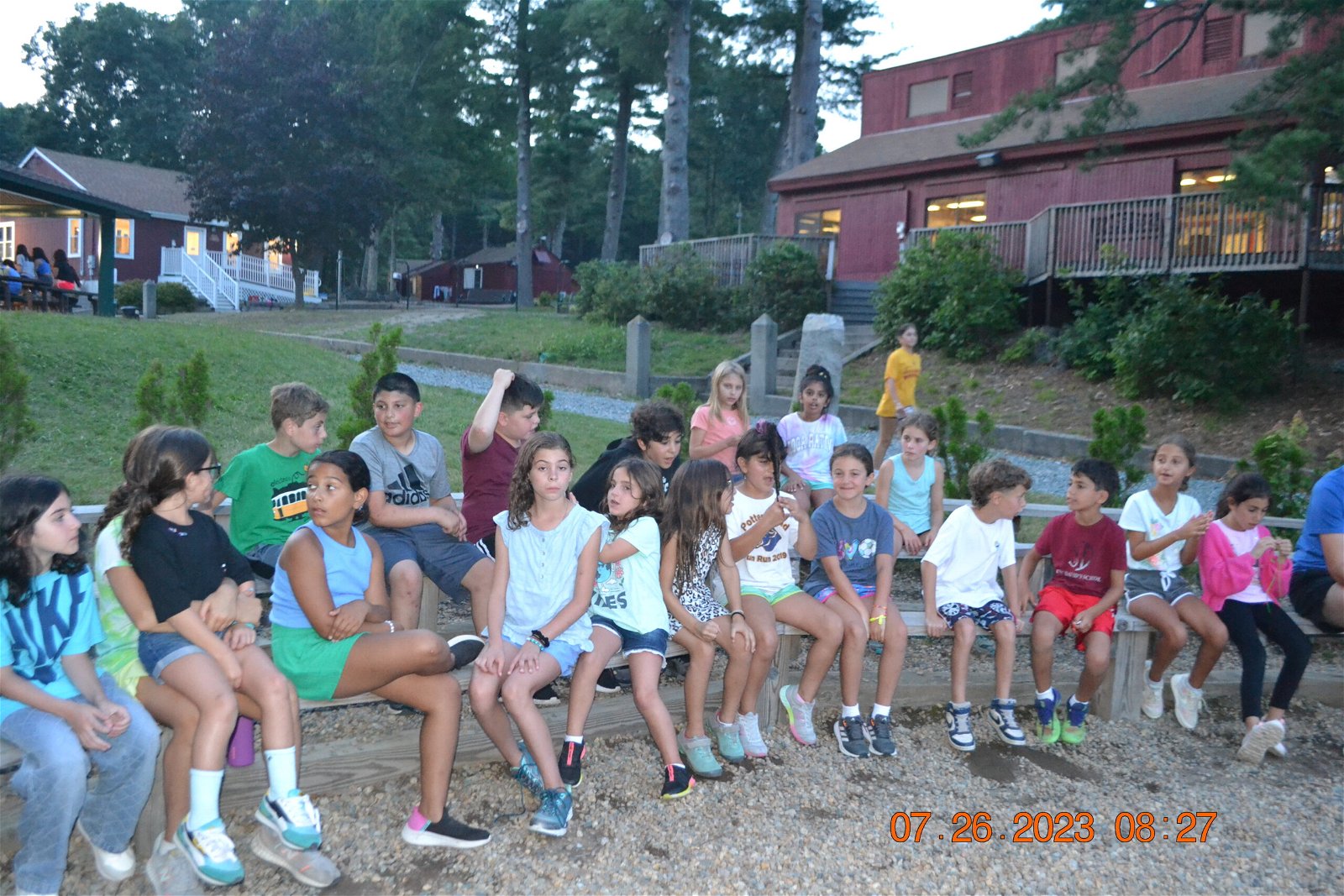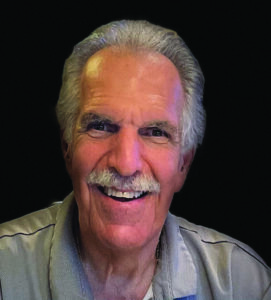In mid-August, AYF Camp Haiastan completed its 73rd year. Located on the shores of Uncas Pond in Franklin, MA, Camp Haiastan was established for campers to strengthen their Armenian identity, while providing a positive, healthy and safe summer camp environment.
Since Kenar Charchaflian, Executive Director, was on parental leave for this summer, the Board of Directors appointed Peter Jelalian as Interim Executive Director in June. The Weekly spoke with Jelalian, who has spent 19 summers at camp, starting in 1962 as a camper. He has also served as a counselor, summer director and member of the Board of Directors. Jelalian is a special education teacher in the New York Public School System. The interview has been edited for clarity.
Armenian Weekly: What has remained constant at AYF Camp Haiastan?

Peter Jelalian: First and foremost for me are the unsung heroes. Those are the people who have volunteered throughout the years with their time, effort and financial support to establish the camp, sustain it and improve it. With the purchase of the land in 1940 by the ARF with the help of the ARS, our extensive community has helped the camp, and in turn, Camp Haiastan has given back to the community by helping children and young people develop their Armenian identity and develop a sense of responsibility to their community. As the needs of our community have changed, the camp evolved to serve those additional needs. I have always said that Camp Haiastan is the jewel in the AYF’s crown.
Throughout my years, I have seen hundreds of people come to camp and volunteer, not only to fix and build but to lecture, cook and play music. For example, John Mangassarian has spent 2-3 days a week for the past two years. This summer we had 12 different musicians come to camp to play the end-of-session dance: John Berberian, Mal Barsamian and others.* They drove down to camp from their homes and spent an entire Saturday entertaining the campers and staff. I must add that they enjoyed it as much as the kids. Seeing 200 young Armenians dance to your music is rewarding.
And this is just the musicians. If you study the camp’s history, you will see how many “unsung heroes” we have, including the dozens that have served on the various boards, the summer directors, executive directors and staff.
A.W.: What about the campers and counselors? Any changes?
P.J.: The camper demographic has always reflected those of our community. When I was a camper, most of us were from Massachusetts, New York, New Jersey and some from Michigan. This year, we had campers from 25 different states. Those states with a historically high Armenian population still send the largest number of campers, but children of Armenian families that live in geographic “isolation” also attend camp.
Although the buildings and the facilities are always being updated and programs revised, the nature of children has not changed much. The camp has always operated by isolating camp from the noise of the outside world. We do not allow personal electronics. Campers like to play, hang around with their cabin mates, dance, shoot baskets, sit on the swings, purposely be very noisy in the mess hall and anxiously wait for the camp store. These activities have been occurring for decades.

One of the major changes is the number of children attending from Canada, California and Europe. This trend began a while back, but for the past few years, the numbers and countries have increased.
I believe that campers upon arriving immediately realize that I am with family – family that you may not have yet met, but family nevertheless. The strengthening of one’s identity and confidence in that identity has not changed.
Those children who may live in a neighborhood or attend school where there are not many Armenians may feel a bit out of place. At camp, everyone can pronounce their name. You share a cultural background, same national religion and the language. Early on, I realized the importance of this place. When children come here, they learn who they are, believe in who they are and can be proud of who they are.
As far as the counselors are concerned, as you may know most of them come from the ranks of previous campers and AYF members. As they were mentored in the past, they now do the mentoring. It is a chain that has not been broken since it was established in 1951. We are fortunate to attract so many young Armenian Americans who want to return to camp and give back. The job is not glamorous, but it is highly satisfying. And it is true, you do form lifelong friends.

A.W.: This year 486 children attended Camp Haiastan. Over seven decades after its establishment its success keeps growing. Do you have an opinion as to why?
P.J.: The parents and the community have a trust in the camp and a belief in its mission. There is trust in the staff and the Board of Directors, and executive director Kenar Charchaflian, that their children will be cared for. On occasion, we may not meet our high standards, but we are always striving to do better.
The camp’s reputation is well known throughout our communities. This year we had third-generation campers as well first-time campers whose parents were brought up in another Diasporan community.
Of course, as we expand, we will need the communities’ assistance. But as they have done in the past 73 years, they will be there to provide their financial, moral and manual support.
*Richie Berberian, Datev Gevorkian, Bruce Gigargian, Mike Gostanian, Daron Pogharian, Sam Sjostedt, Alek Surenian, Ron Tutunjian, Anto Vartanian and Steve Vosbikian
This article was originally published on The Armenian Weekly.

